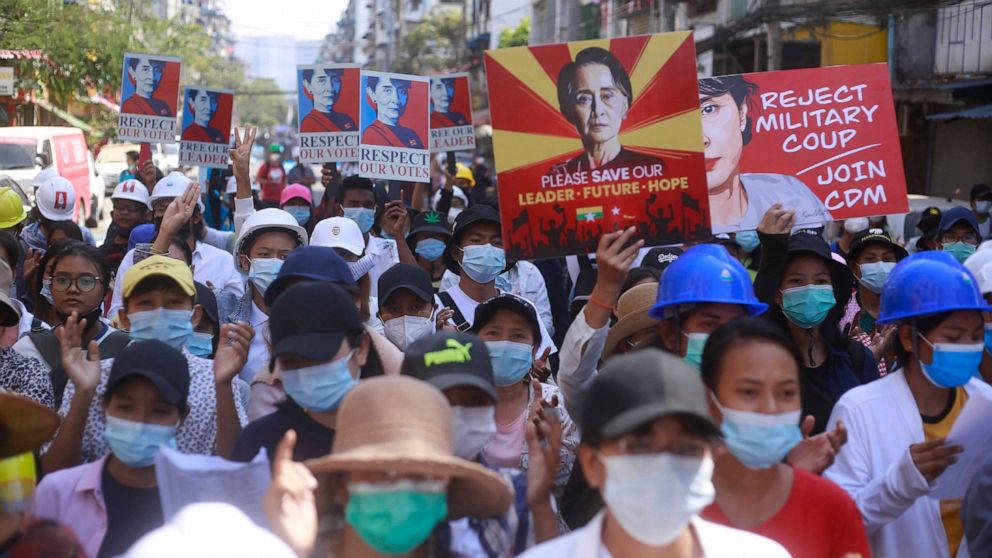
UNITED NATIONS, April 10 (NNN-AGENCIES) — Myanmar’s own ambassador to the United Nations pressed for a no-fly zone and sanctions as international pressure grew on the military junta to end a deadly crackdown and restore democracy.
The United States and European nations pleaded for action at a meeting of the UN Security Council where a Southeast Asian summit on the crisis was taking shape, but the junta remained defiant and refused entry to a UN special envoy.
Ambassador Kyaw Moe Tun, who has passionately rejected the Feb 1 coup and brushed aside the junta’s claims that he no longer represents Myanmar, told the Security Council that there has been a “lack of adequate and strong action” despite hundreds of deaths, including of children.
“Your collective, strong action is needed immediately,” said Kyaw Moe Tun, in virtual remarks as he sat before the Myanmar and UN flags.
“I strongly believe that the international community, in particular the UN Security Council, will not let these atrocities keep going on in Myanmar.”
The ambassador called for a no-fly zone to “avoid further bloodshed caused by the military air strikes on civilian areas”. He also asked for an international arms embargo and the freezing of bank accounts associated with members of the military and their families.
All foreign direct investment should also be suspended until the restoration of the democratically elected government, the ambassador said.
China and Russia wield veto power at the Security Council and generally oppose international sanctions, although Beijing – the top ally of Myanmar’s military – has voiced growing concern about instability in its neighbour.
Linda Thomas-Greenfield, the US ambassador to the United Nations, said the military “needs to feel the cost associated with its horrific actions” after ignoring previous condemnation.
“Will the Council quibble over language in yet another statement or will we act to save the lives of the Burmese people?” she said, using Myanmar’s former name, Burma.
Estonia, a non-permanent member of the Council, called for work on a resolution that would include sanctions and an arms embargo.
With violence rising and refugees flowing out of Myanmar’s borders, regional powers have stepped up efforts to find a resolution.
A summit on Myanmar of the Association of Southeast Asian Nations (ASEAN) will take place on Apr 20, Nathalie Broadhurst, France’s deputy ambassador to the United Nations, told the Security Council.
Diplomats said that the meeting was expected to be in person in Jakarta, the headquarters of ASEAN.
Another diplomatic effort faced immediate opposition from the junta which refused to let in the UN special envoy for Myanmar, Christine Schraner Burgener, who is on a tour of Asian countries.
“We have not permitted this. We also have no plan to allow it at this moment,” spokesman Zaw Min Tun said.
Burgener had sought face-to-face meetings with the junta as well as civilian leader Aung San Suu Kyi, detained since the coup.
At least 614 civilians have been killed in the military’s crackdown on protests and nearly 3,000 arrested, according to the Assistance Association for Political Prisoners, a local monitoring group.
There was more bloodshed on Friday, with rescue workers reporting at least four people killed in the early morning when security forces broke up protest barricades in the city of Bago, 65km northeast of Yangon.
State media reported on Friday that 19 people were sentenced to death for robbery and murder by a military court, adding that 17 of them were tried in absentia.
The protest movement has sought to disrupt the military’s ability to run the country by encouraging key public workers such as doctors and railway staff to stay at home.
Zaw Min Tun, the military spokesman, accused medical staff of “killing people in cold blood” by refusing to work. — NNN-AGENCIES
